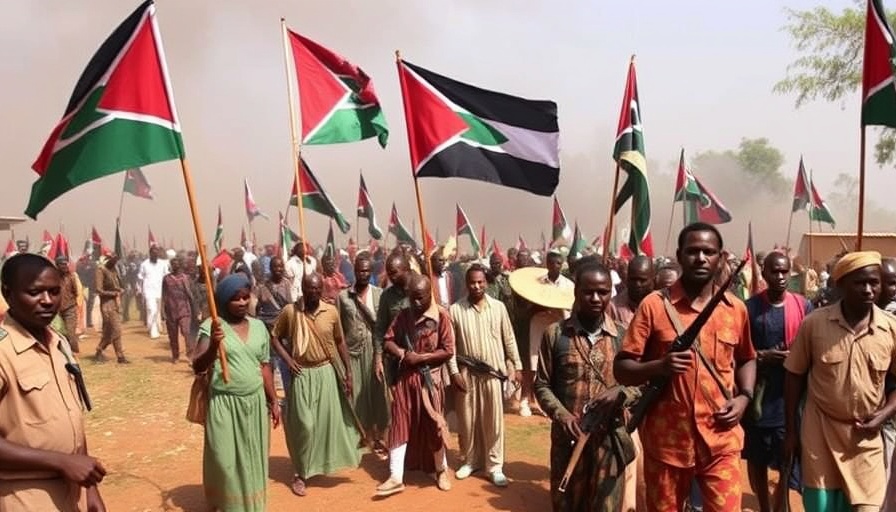
A Warning from South Sudan's Peace Monitors: An Urgent Call to Action
The fragile peace in South Sudan, established by the 2018 Revitalized Agreement on the Resolution of the Conflict in South Sudan (R-ARCSS), faces increasing threats of collapse. According to the latest reports from UN peacekeeping officials, the country stands at a critical crossroads, teetering on the brink of renewed civil war. Following two turbulent years since the establishment of a national unity government, serious questions linger about the sustainability of the peace process amid ongoing violence and political maneuvering.
Political Maneuvering: From Hope to Despair
Despite initial hopes that the peace agreement would stabilize South Sudan, the political landscape is characterized by betrayal, power consolidation, and increasing violence. President Salva Kiir’s administration has been accused of sidelining opposition leaders, including the recent arrest of key political figures linked to Vice President Riek Machar, a move interpreted as a desperate attempt to secure power against a potentially volatile backdrop of ethnic strife.
Analysts have voiced concerns over the implications of these actions for the broader African context, particularly as they intersect with regional geopolitics. External influences are increasingly evident, as Kiir's government seeks to gain support from the UAE amid the ongoing conflict in neighboring Sudan. As regional alliances shift and intervention escalates, the risk of South Sudan being used as a proxy battleground increases, with potential ramifications for the larger East African socio-political landscape.
Economic Impact: How Instability Affects Markets
The repercussions of ongoing instability are not just confined to the political sphere; they extend deeply into South Sudan’s struggling economy. As has been historically evident, prolonged violence has led to economic stagnation as critical infrastructure is repeatedly destroyed and international investment declines. With oil production as the backbone of the economy, incidents of violence threaten export operations, directly impacting not only local livelihoods but also global markets reliant on African oil.
A Call for International Attention and Engagement
Despite South Sudan's dire situation, international attention has waned since the early days of the peace agreement. However, renewed diplomatic efforts from entities like the African Union and the UN are emerging, emphasizing the need for a collective approach to prevent further escalation. As high-level discussions resume among regional leaders, including those from the East African Community, the possibility of tangible steps towards de-escalation remains a pressing concern.
The Path Forward: A Delicate Balance
For South Sudan, a return to peace necessitates more than mere diplomacy; it calls for a robust, multi-faceted strategy addressing the underlying causes of conflict alongside immediate humanitarian needs. The power dynamics within South Sudan demand careful navigation by both internal and external actors to avert further chaos and support the establishment of a cohesive governance structure. Only through collective action can South Sudan hope to reclaim its path to stability and avoid the pitfall of anarchy.
 Add Row
Add Row  Add
Add 


Write A Comment